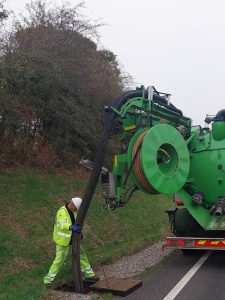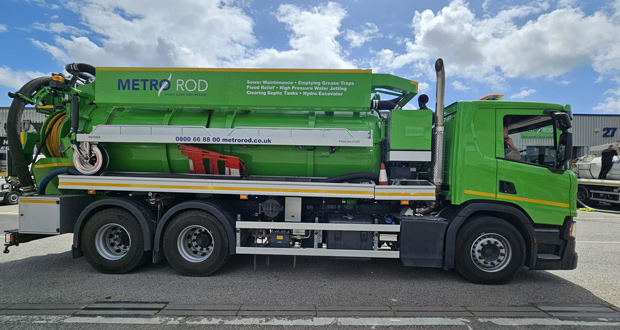Case Study: How Regular Gully Cleaning Prevents Flooding
 Flooding and blocked drains can bring operations to a standstill, cause property damage, and create safety hazards. One local council faced this challenge across its road network: ensuring gullies and drainage systems were kept clear and safe while having the information needed to plan maintenance efficiently.
Flooding and blocked drains can bring operations to a standstill, cause property damage, and create safety hazards. One local council faced this challenge across its road network: ensuring gullies and drainage systems were kept clear and safe while having the information needed to plan maintenance efficiently.
They partnered with Metro Rod to deliver a full solution. Regular gully cleaning was carried out across the network, covering gullies, catch pits, slot channels, and kerb drainage. Silt, debris, and waste were removed, restoring drainage capacity and reducing the risk of flooding.
The service also included detailed inspections. Each gully was checked for accessibility, condition, and silt levels, with all information uploaded to an online portal. Using a simple traffic-light system, the council could see at a glance which gullies were clear, which needed attention, and which had access issues. This meant problems could be addressed quickly, and maintenance could be planned more efficiently.
The Benefits of Being Proactive
The council saw immediate and measurable results:
- Lower Flood Risk: Regular cleaning keeps water flowing and reduces the chance of road closures.
- Safer Roads: Clear drainage improves safety and helps meet highway standards.
- Better Planning: Live data allows maintenance teams to focus on the areas that need it most.
- Environmental Compliance: Proper waste disposal and responsible maintenance support sustainability goals.
- Early Issue Detection: Identifying blocked gullies or damaged covers early prevents more serious problems.
- Public Confidence: A visible commitment to well-maintained roads builds trust and reassurance for the community.
By taking a preventative approach, the council moved from reacting to issues as they occurred to addressing them before they became a problem. Instead of waiting for a blockage to cause flooding, they could spot and fix issues early.
What This Means for Your Business
Storms, heavy rainfall, and seasonal debris can affect any property, from car parks and warehouses to retail sites. Proactive maintenance protects your assets, minimises downtime, and keeps staff, visitors, contractors, and occupants safe.
Practical Steps for Flood Prevention
Interceptor Emptying in Car Parks
Leaves, oil, and silt build up quickly in gullies and interceptors, especially in autumn and winter. Blocked systems prevent water from draining, causing surface flooding and closures. Regular interceptor emptying and high-pressure cleaning keeps systems clear and reduces disruption.
Gutter and Drain Clearance
Debris such as leaves or wipes can easily block drains and gutters. During heavy rainfall, this can lead to leaks and property damage. Routine maintenance keeps water flowing and prevents costly downtime.
Drain Mapping and Inspections
Knowing your drainage system is key. Mapping and inspections show access points, flow directions, and potential problem areas. This allows issues to be dealt with quickly and ensures compliance with environmental regulations, reducing the risk of flooding or fines.
Why a Specialist Makes a Difference
Proactive maintenance isn’t just about cleaning drains. It’s about having the insight, planning, and support to keep your property running smoothly. Live reporting, clear insights, and responsive support help teams spot recurring issues, plan efficiently, and deal with problems before they escalate. The result is safer, more resilient sites and peace of mind for staff, customers, and visitors.
Flooding and blocked drains don’t need to disrupt your business. Simple preventative steps and the right support can protect your property, reduce downtime, and keep your operations running, whatever the weather.
For advice on protecting your site and reducing flood risk, contact Metro Rod today.
Call us on 0800 66 88 00 or visit our website to find out more.





